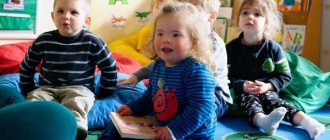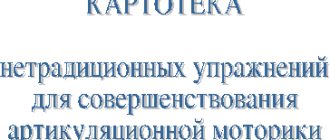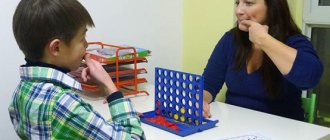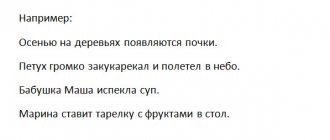System of work on speech development of preschool children
System of work on speech development of preschool children
System of work on speech development of preschool children
The objectives of the work of preschool educational institutions on the speech development of preschool children are
:
— mastery of speech as a means of communication and culture;
— enrichment of the active vocabulary, development of coherent
, grammatically correct dialogical and monologue speech;
— development of speech creativity
;
—development
sound and intonation culture of speech, phonemic hearing;
— acquaintance with book culture, children’s literature, listening comprehension of texts of various genres of children’s literature;
— formation of sound analytical-synthetic activity as a prerequisite for learning to read and write.
In the process of organizing work on children’s speech development
We use the following approaches:
1. An integrated approach to the development of oral speech
, providing:
– understanding speech, attracting children’s
to one’s own speech and the speech of others;
– development
coherent dialogic and monologue speech;
– enrichment and clarification of the dictionary;
– development
grammatical structure of speech;
– development of the speech apparatus
, sound pronunciation;
– development of fine motor skills
2. Practical mastery of speech norms and their application in various forms and types of children's activities.
3. Development of children's oral speech
in conjunction with other mental processes.
Job
in this area is built on the principles
of systematicity
, consistency and continuity.
Creating conditions for the full development of children's speech
, we provide:
— creation of a developing
subject-spatial environment;
— purposeful work of educators on children’s speech development
in all types of children's activities and in close cooperation with parents;
— increasing the professional growth of teachers in matters of speech development of preschoolers
;
— study of the state of speech development of children during preschool childhood
;
An important place in work on the speech development of preschool children
is occupied by the effective organization
of a developing
subject-spatial environment in accordance with the Federal State Educational Standard for Education.
Speech corners
in all age
groups of preschool educational institutions .
Certain requirements for their content
have been developed Teachers have accumulated and systematized
a variety of practical material for organizing
speech games and classes
: manuals for articulation exercises, sets of finger games, thematic albums, games for enriching vocabulary, developing grammatical structure, coherence
speech, development
phonemic hearing and fine motor skills, plot-based role-playing games.
The developmental environment of each age
group is complemented by different types of theaters, which are of no small importance in
the speech development of children
.
Development of a child’s speech through different types of children’s activities
Development of a child’s speech through different types of children’s activities
One of the leading tasks that preschool educational institutions solve, in the context of educational areas, is the development of children’s speech
.
Speech as the leading means of communication accompanies all types of child activity.
.
his authority and status position
on the quality of speech
, the ability to use it in play, during joint
activities between the teacher and the child
, when planning and discussing a drawing, while observing a walk, when discussing a performance, etc. in the children's community
.
Formation of correct speech
is one of the main tasks of preschool education. However, a dynamic analysis of the practical situation over the past few years indicates an annual increase in the number of preschool children with speech disorders.
Today – figurative
Speech rich in synonyms, additions and descriptions in preschool children is a very rare phenomenon.
Therefore, it is necessary to take care of the timely formation of children’s speech
, its purity and correctness, preventing and correcting various violations, which are considered to be any deviations from the generally accepted forms of the Russian language.
Based on the above, the team identified the following tasks for speech development
.
1. Enrich the cognitive-speech sphere of children with information through classes
, observations, experimental
activities
, speech.
2. Enrich emotional and sensory experience in the process of direct communication with objects, phenomena, and people.
3. Create conditions that facilitate the identification and maintenance of interests, the manifestation of independence in cognitive and speech activity
.
4. Maintain conditions for development
cognitive and speech processes of preschool children in all types
of activities
.
In the work practice of teachers, the following forms of work are used by type of educational activity
.
— regime moments
- joint activities of the teacher and children
- independent activities of children
- joint activities with family
.
Practical implementation of the specified system of work on speech development
contributes to the development of speech activity, the foundations of
the child’s
.
Features of integration of educational areas in the speech development of preschool children
.
Speech communication in preschool age is carried out in different types of activities
: in play, work, household, educational
activities
and acts as one of the sides of each type.
Therefore, it is very important to be able to use any activity to develop speech
.
First of all, speech development
occurs in the context of leading
activity
.
In relation to young children, the leading activity is object-based activity
; for preschool children, play
activity
.
CHILDHOOD GUIDE
Quite often, when writing a plan or outline of a GCD, teachers experience difficulties in formulating tasks.
What to consider?
When formulating the objectives of educational activities in accordance with the Federal State Educational Standard for Preschool Education, it is necessary to remember that one of the basic principles of preschool education is the personal developmental and humanistic nature of the interaction between the teacher and children. This means that the child is recognized as a full participant in educational relations and an active subject in choosing the content of his education.
The main form of organization of the modern educational process is the joint activity of the teacher and the child.
Thus, if in joint activities the teacher and the child act as equal participants in the educational process, then tasks must be formulated based on the position of the partner . Therefore, the verb “teach” should be excluded from the formulations, and it would be more appropriate to use the verbs “promote”, “form”, “enrich”, “develop”, “activate” and others.
Below are examples of modern formulations of tasks in the educational field “Speech development” and for each age period of preschoolers - junior, middle, senior (5-7 years).
Objectives of the educational field “Speech development”
- Objective according to the Federal State Educational Standard for Additional Education: Proficiency in speech as a means of communication and culture
Subtasks:
Junior preschool age:
- develop the ability to ask, answer, request, make a remark;
— introduce images of addressing adults and peers;
— promote friendly communication with peers;
— develop the need to share your impressions with adults and peers.
Middle preschool age:
— discuss with children information about objects, phenomena, events that go beyond the boundaries of their familiar immediate environment;
— develop the ability to take initiative in communication;
— to develop the ability of preschool children to establish contacts with each other through verbal interaction.
Senior preschool age:
— develop the motivational-need sphere in communication;
— form communicatively appropriate speech;
— develop the ability to communicate in pairs, groups, and teams;
— create conditions for the child’s independence and activity in speech activity.
- Task according to the Federal State Educational Standard for Preschool Education: Enrichment of the active vocabulary
Subtasks:
Junior preschool age:
— encourage you to name an object, thing, toy, their qualities, properties, possible actions;
— develop an understanding of the meanings of generalizing words and the ability to use them in speech (toys, vegetables, furniture, etc.);
— enrich children's vocabulary by deepening their understanding of the surrounding reality.
Middle preschool age:
— to develop the ability to understand polysemantic words, the compatibility of different words (“it’s coming” - about a person, a train, a film, rain);
— clarify general concepts (toys, vegetables, furniture, etc.);
— expand your understanding of synonyms and antonyms;
- promote mastery of different methods of word formation;
- promote the use of the most common adjectives, verbs, adverbs, and prepositions in speech.
Senior preschool age:
— intensify the use of antonyms, synonyms, homonyms in speech;
— continue to introduce the meanings of polysemantic words;
— activate children's vocabulary with adjectives characterizing the properties and qualities of objects, adverbs denoting relationships between people;
- to develop the ability to use words in speech in strict accordance with the meaning.
- Objective according to the Federal State Educational Standard for Preschool Education: Development of coherent, grammatically correct dialogical and monologue speech.
Subtasks:
Junior preschool age:
— to promote children’s ability to coordinate adjectives with nouns in gender, number, case, and to use nouns with prepositions;
— introduce verbal vocabulary;
— introduce simple declarative and interrogative sentences;
— to develop the ability to reproduce the text of a familiar fairy tale or short story, first according to questions from an adult, then together with him;
— promote the formation of dialogical communication;
— engage in conversation while looking at objects, paintings, illustrations, observing living objects, after watching plays and cartoons;
— lead children to compose stories from personal experience.
Middle preschool age:
— continue to develop the ability to coordinate words in a sentence, correctly use prepositions in speech, form the plural form of nouns denoting baby animals;
— promote the development of dialogical speech;
— introduce the basic rules of dialogue (the ability to listen and understand the interlocutor, formulate and ask questions, build an answer in accordance with what is heard);
— continue to develop skills in retelling and writing short stories;
— promote the inclusion of elements of reasoning in the formation of descriptive speech;
— continue to develop narrative speaking skills;
— introduce the composition of a coherent statement (beginning, middle, end).
Senior preschool age:
- promote the correct use of prepositions expressing spatial relationships (on, in, behind, from, under, between, in front, etc.); - help form nouns in the plural, genitive plural;
— develop the ability to use verbs in the imperative mood;
- to form an active dialogical position of preschoolers (initiative in questions, readiness to answer, ability to hear and understand the interlocutor); — create conditions for enhancing dialogical communication among preschoolers; - practice the ability to intonationally reflect the purpose of the statement;
— develop the ability to construct not only simple common, but also complex sentences of various types;
— develop the ability to construct different types of statements (description, narration, reasoning);
— improve the ability to use direct and indirect speech; - create a cultural speech environment in the child’s environment and promote the activation of children’s speech;
— help to master forms of speech etiquette.
- Objective according to the Federal State Educational Standard for Additional Education: Development of speech creativity.
Subtasks:
Junior preschool age:
— enrich children's knowledge about the surrounding reality;
— enrich the experience of perception of small folklore forms;
— to form an emotional response to artistic images in literary and folklore works.
Middle preschool age:
- promote the development of artistic perception;
- to develop the ability to feel the artistic form, melody and rhythm of the native language;
- encourage word creation as one of the most important features of a child’s speech development;
- promote the writing of short fairy tales and stories on a given topic;
- continue to introduce different genres of literature and their specific features.
Senior preschool age:
- develop the ability to compose short stories of a creative nature on a topic proposed by the teacher; based on a nursery rhyme, riddle, song; come up with unusual endings to familiar fairy tales; connect plots of works of different genres;
- continue to improve the ability to select comparisons, epithets, synonyms, antonyms, rhymes for words and phrases;
— improve children’s understanding of the features of the genre of literary works;
— to intensify the inclusion of new actions in the dialogue of characters and the transmission of improvised dialogue with different intonations.
- Objective according to the Federal State Educational Standard for Additional Education: Development of sound and intonation culture of speech, phonemic hearing.
Subtasks:
Junior preschool age:
— develop the ability to clearly pronounce vowels (a, u, i, o, e) and some consonant sounds in words: p – b; t – d; k - g; f - v; t - s - z - c;
— develop the correct speech rate and voice strength;
- develop intonation expressiveness;
- develop phonemic awareness.
Middle preschool age:
— reinforce correct pronunciation
vowels and consonants;
— practice the pronunciation of whistling, hissing and sonorant sounds;
— develop phonemic awareness: learn to distinguish by ear and name words that begin with a certain sound;
— develop intonation expressiveness of speech.
Senior preschool age:
— continue to consolidate clear pronunciation of sounds;
- to develop the ability to distinguish by ear and clearly pronounce consonant sounds similar in articulation and sound: s - z, s - c, sh - zh, ch - c, s - sh, zh - z, l - r.
- continue to develop phonemic awareness;
- develop the ability to determine location
sound in a word (beginning, middle, end);
- improve intonation expressiveness of speech.
- Objective according to the Federal State Educational Standard for Preschool Education: Acquaintance with book culture, children's literature, listening comprehension of texts of various genres of children's literature
Subtasks:
Junior preschool age:
— to develop interest in fiction;
- develop emotional responsiveness to a work of art;
- introduce literary texts of various genres (fairy tale, poem, story).
Middle preschool age:
- develop the ability to perceive a literary work, the desire to respond emotionally to the events described;
- draw attention to the content of the work; to the auditory perception of the form of the work (poetry, prose), to some features of the literary language (comparisons, epithets);
- develop the ability to analyze a work of art using questions.
Senior preschool age:
— to develop the ability, based on an analysis of the characters’ actions, to express one’s emotional attitude towards them;
- develop the ability to determine the genre of a work (poem, story, fairy tale);
- promote the perception of the most striking examples of language figurativeness (definitions, comparisons, metaphors);
- enrich literary experience in order to understand the idea of the work, the actions of the characters, the motives of their behavior;
- improve the holistic perception of literary works in the unity of their content and artistic form.
- Task according to the Federal State Educational Standard for Preschool Education: Formation of sound analytical-synthetic activity as a prerequisite for learning to read and write.
Subtasks:
Junior preschool age:
- lead to an understanding of the terms “sound”, “word”;
— develop the ability to listen to the sound of words;
- develop auditory perception.
Middle preschool age:
- develop phonemic awareness: distinguishing by ear and naming words with a certain sound;
- consolidate the pronunciation of all sounds of the language;
- continue to introduce the terms “word”, “sound”;
- to form knowledge that words consist of sounds, sound different and similar, that the sounds in a word are pronounced in a certain sequence;
- to develop the ability to distinguish between hard and soft consonants by ear, to identify and pronounce the first sound in a word in isolation, to name words with a given sound;
- pay attention to the duration of the sounds of words (short and long).
Senior preschool age:
- continue to develop the ability to analyze words of different sound structures;
- promote the ability to highlight verbal stress and determine its place in the structure of the word;
— to activate the ability to qualitatively characterize the sounds being distinguished (vowels, hard consonant, soft consonant, stressed vowel, unstressed vowel sound);
— promote the correct use of relevant terms;
- develop the ability to divide two-syllable words into syllables, compose words from syllables, divide three-syllable words with open syllables into syllables.
- promote the understanding that speech consists of sentences, a sentence - of words, words - of syllables and sounds.
Dear teachers! If you have questions about the topic of the article or have difficulties in working in this area, then write in the comments . I'll definitely help.
Golovina Bela Gennadievna, site administrator, candidate of pedagogical sciences
Formation of communicatively expedient speech in preschoolers Speech development of preschoolers by age Modern types and methods of speech interaction when perceiving a picture Planning for the development of speech in preschoolers >






